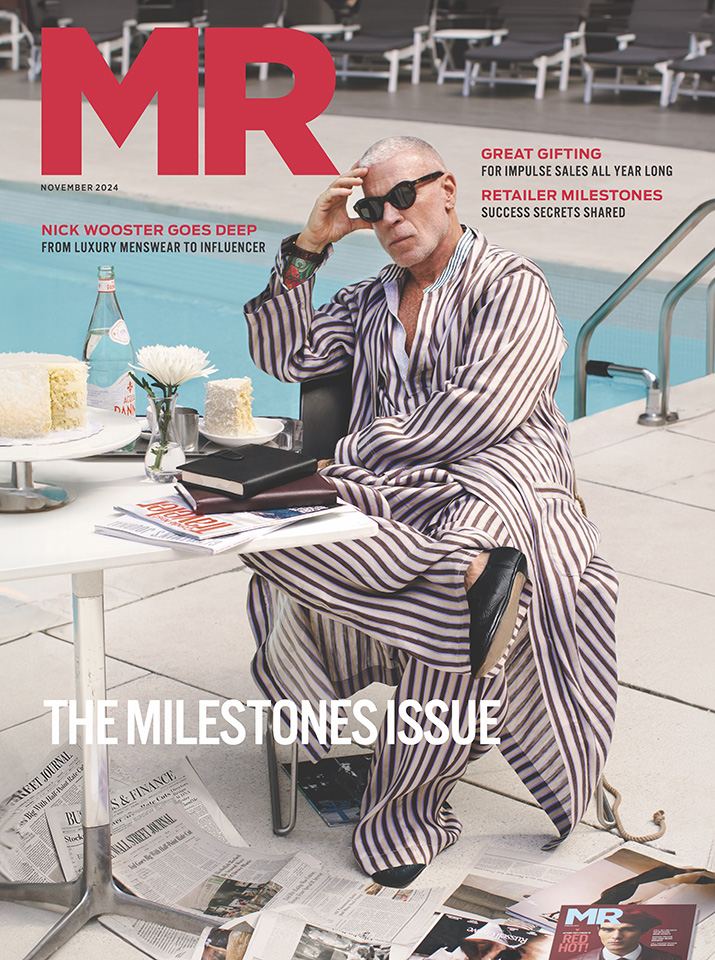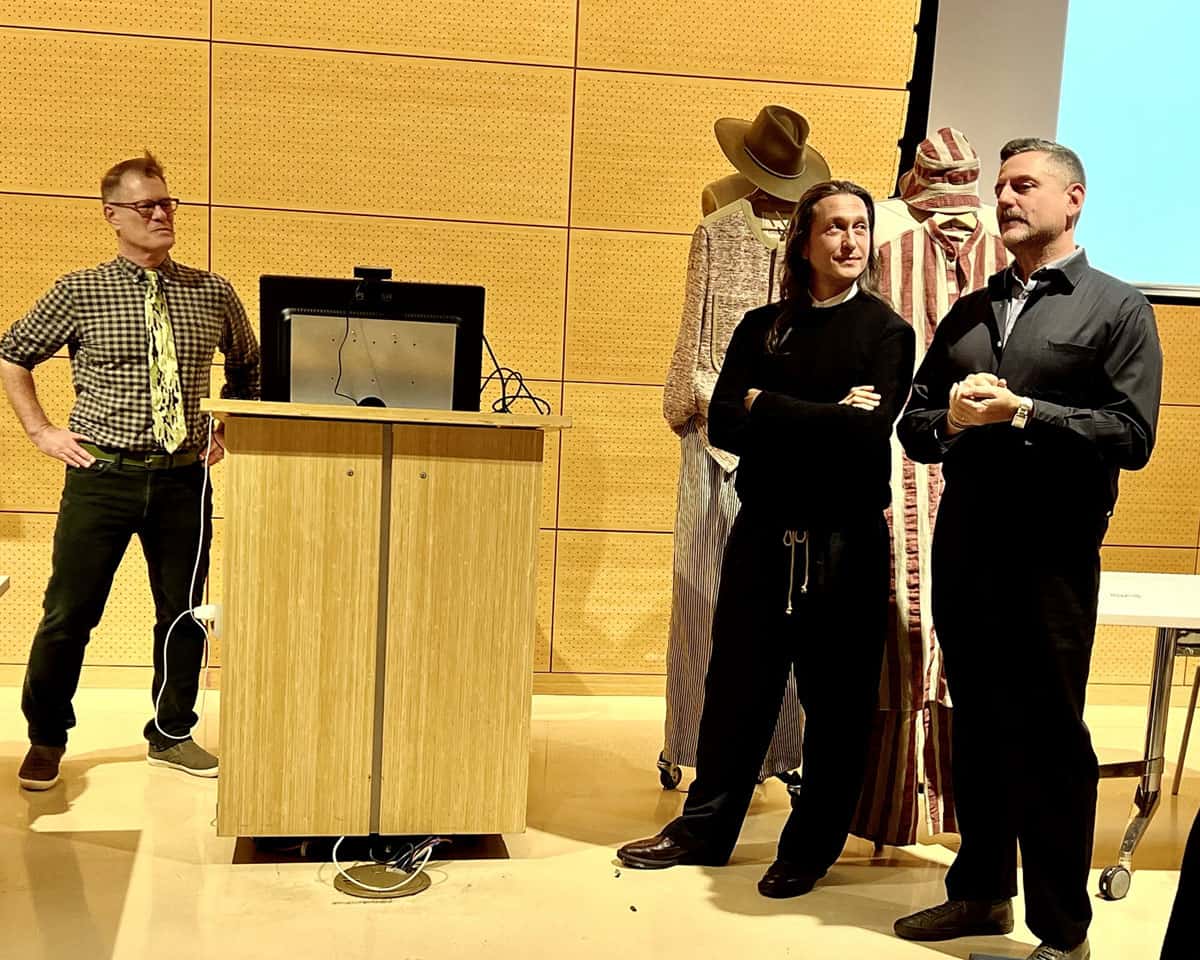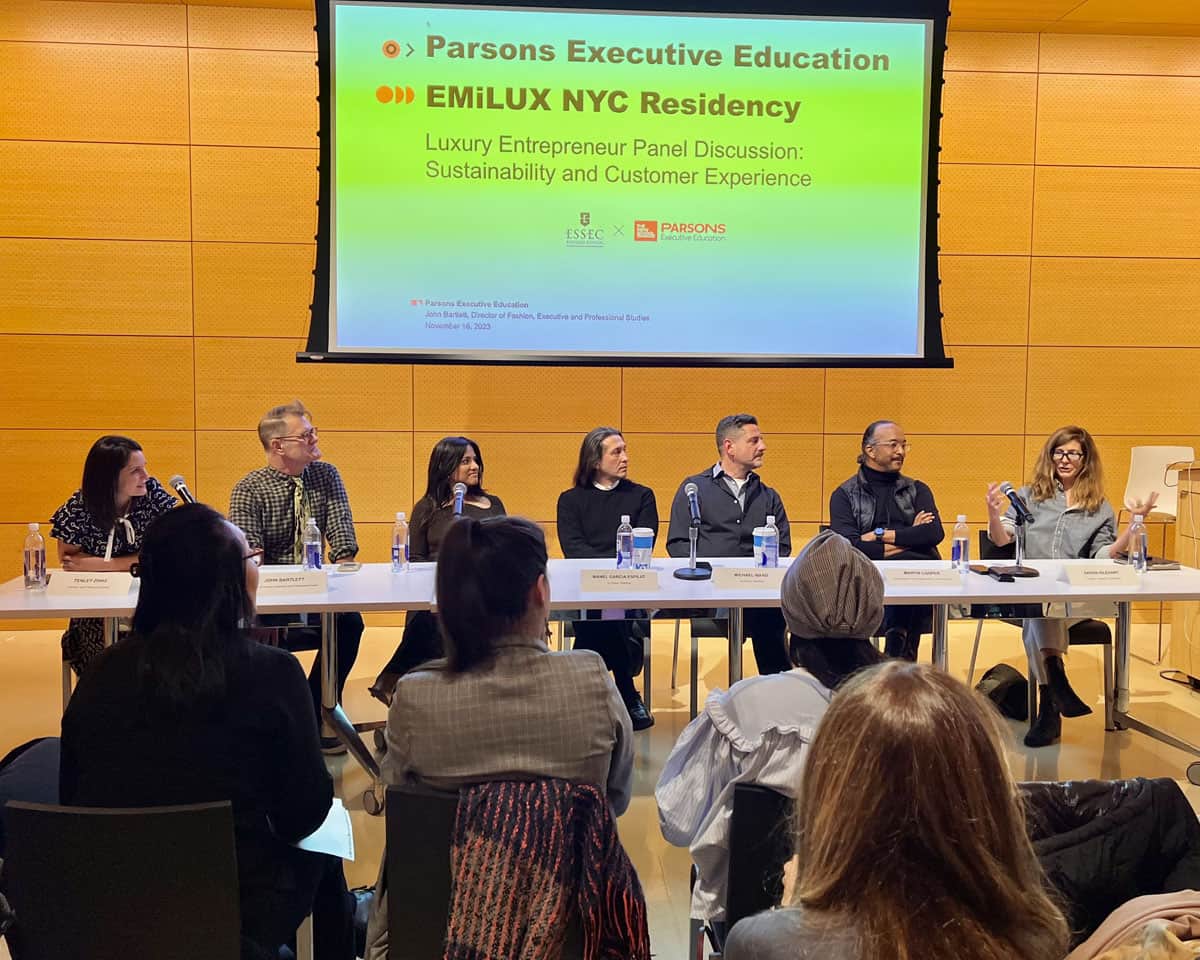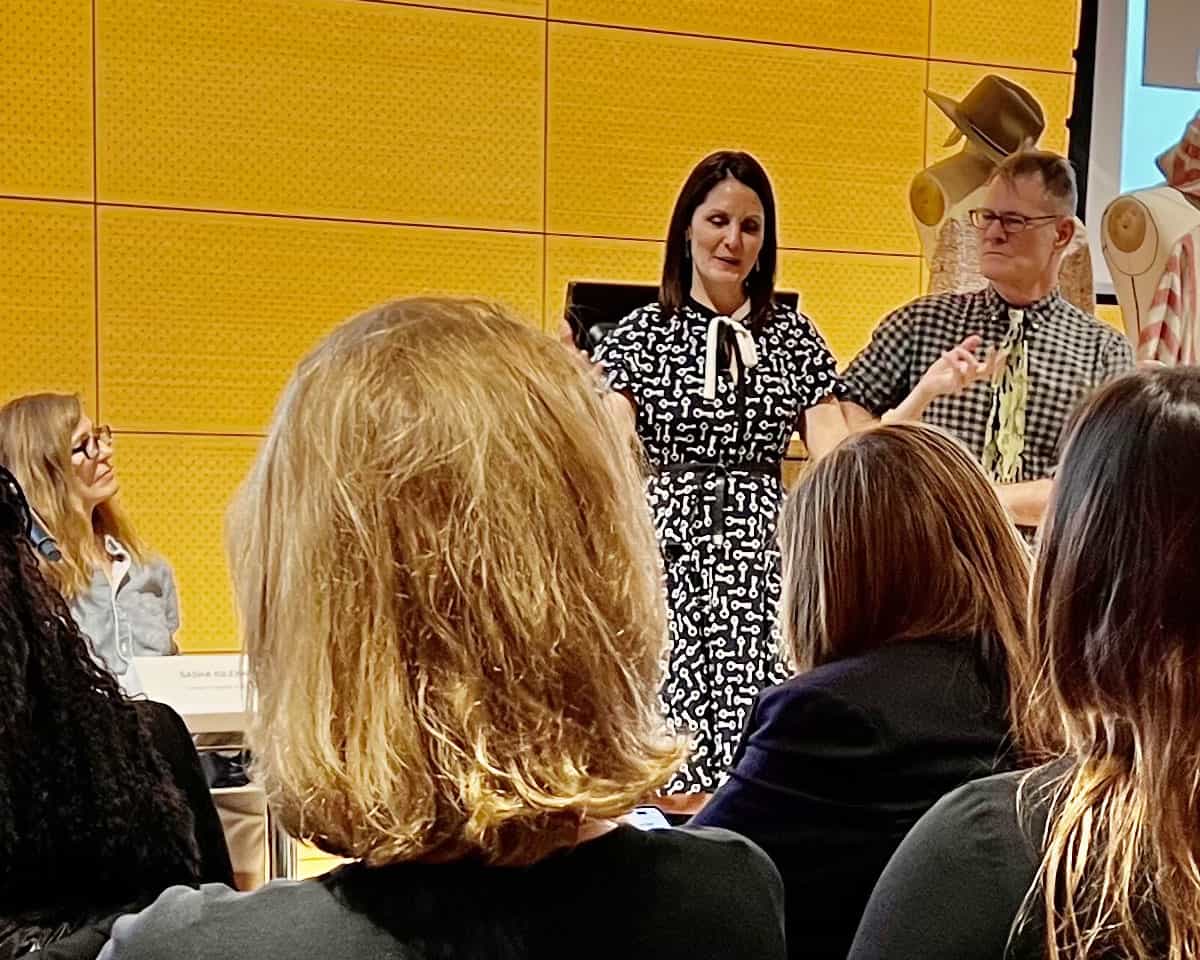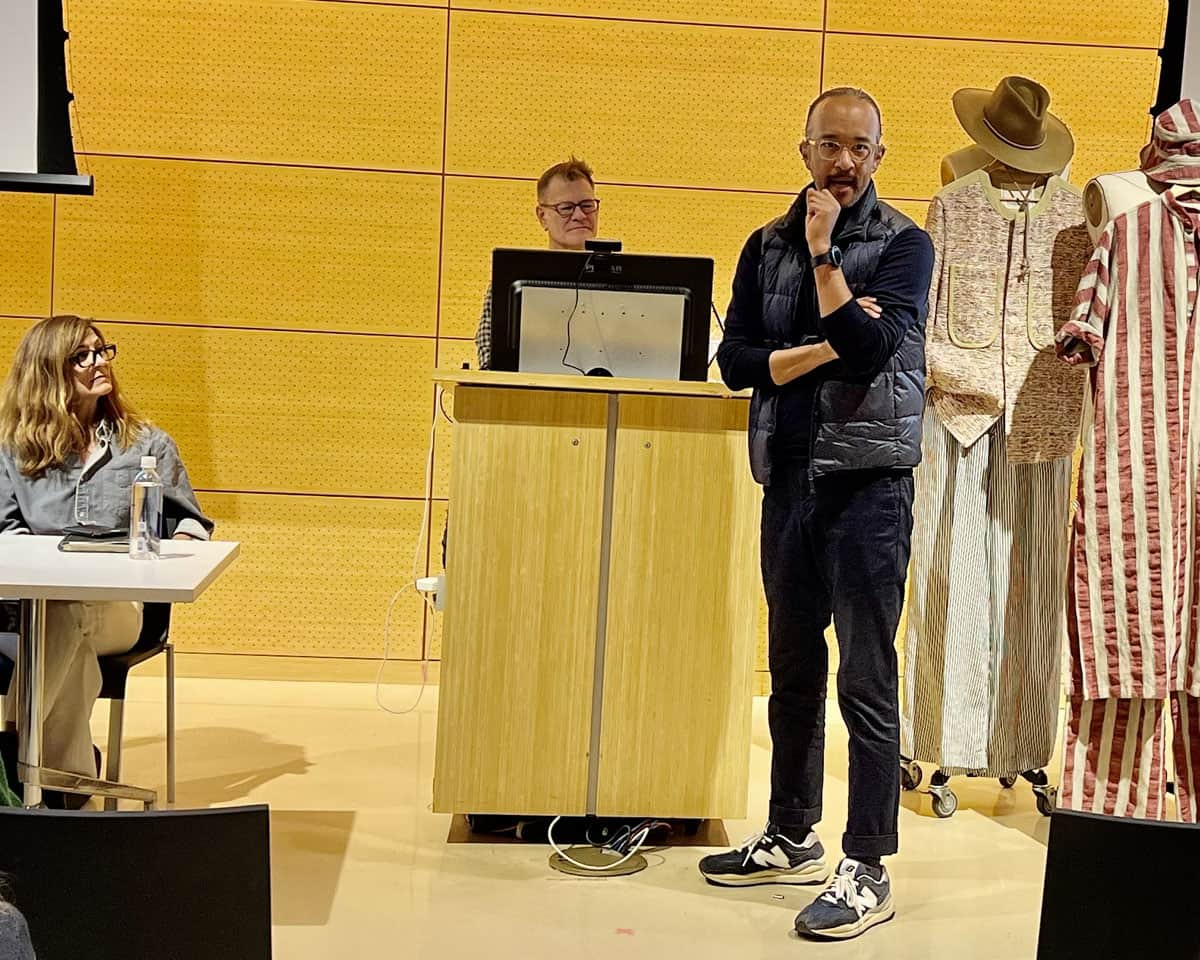LUXURY ENTREPRENEURS SHARE WORDS OF WISDOM AT PARSONS
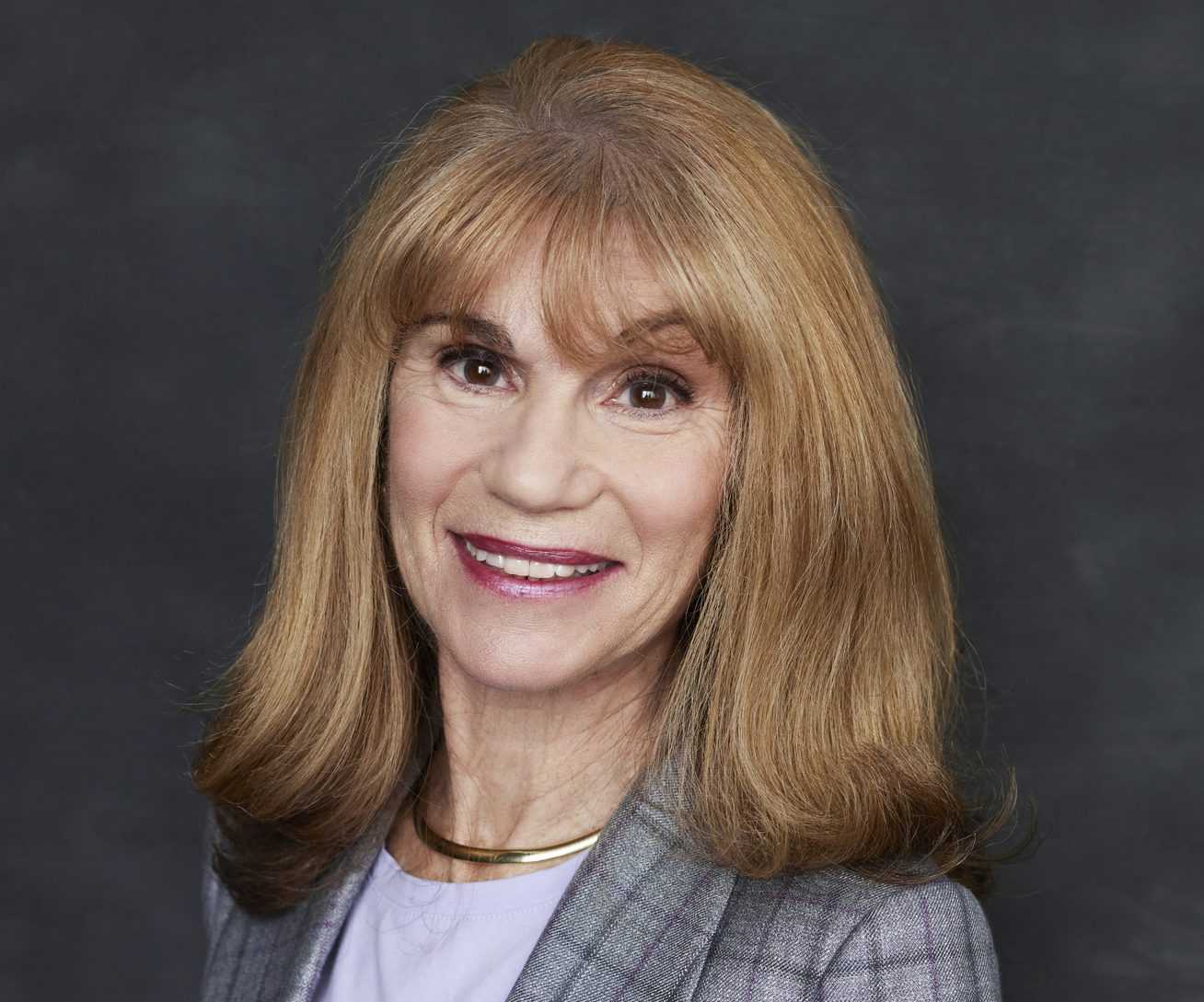
A recent panel of luxury entrepreneurs presented by Parsons Executive Education division and expertly moderated by its new Director of Fashion Programs John Bartlett (congrats John!) was fascinating on several levels. Not only did these six entrepreneurs recently establish rewarding businesses with a definite nod to sustainability, but they’ve all learned important lessons along the way. As is often the case in life, the School of Hard Knocks is a fine teacher indeed.
Among the insights presented by this impressive panel, Martin Cooper, co-founder of The Punctilious Mr. P’s Place Card Company, talks about a “joy economy” where commerce and purpose intersect. He and his partner built sustainability into their business (personalized place cards for dinner parties and events) by creating an entirely made-to-order, never-on-sale concept. “Our website is our store, and service is more important than product. We sell a pack of place cards for $49 but we treat our customers like they’re buying Chanel. You don’t have a luxury brand until your customers say you do. We cite 7 to 9 touchpoints before a conversion.”
Esha Soni, with experience at Ghurka, Michael Kors, and Ralph Lauren, has learned after 20 years in fashion that you should choose to do what you love. She has chosen luxury handbags and believes that sustainability is a mindset for both the brand and the consumer. “We must all be mindful of how much we consume; transparency is key. I believe that to be a luxury brand, the story has to be authentic. I aim for a relationship with my customers: I want to know who is buying the bags and why.”
Michael Ward and Manel Garcia Espejo, partners in business and in life, founded thesalting in 2018. Both had trained with name designers (Manel spent 16 years at Calvin Klein) but knew it was time to venture out on their own. Their fabulous gender-neutral collection (now in about 40 points of sale including Bergdorf) is 90% from natural fibers and is worn by influencers like Nick Wooster and Oprah. “We don’t make assumptions about people: we have no target demographic. The clothes are sustainable in that we don’t use zippers or excess decoration; our pants are all drawstring. We’re designers, and manufacturers; the challenge (and reward) is making someone feel fantastic.”
Sasha Iglehart founded A Shirt Story after a career in magazine publishing. “When magazines transitioned to digital, they fired their senior editors since there was no longer a need to send them to London, Paris or Milan. I created a business by washing/cutting/fraying/decorating oversized white shirts. Some were my dad’s cotton Brooks Brothers shirts, some came from Goodwill. I was driven by the questions: what is this shirt’s story and what is its next chapter? I learned that 50 percent of all clothing purchased is returned, which costs retailers 66 percent of the original price.”
The bottom-line message to those stuck in an unfulfilling career: Take the time to slow down and think: what do you really want to be doing with the rest of your life? Let it be what you love.
